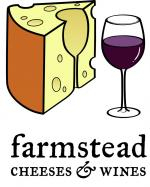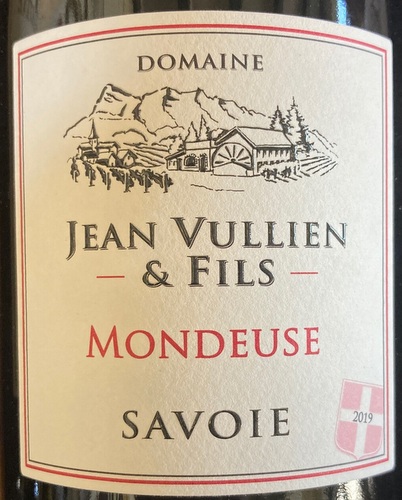Vullien Mondeuse (Organic)
The eastern French region of the Savoie is one of the most exciting wine regions on the planet, and it’s near the top of my must-see places to go once we can get on airplanes and visit other countries again.
Savoie is blessed —a cool mountain climate on a warming planet, and about as idyllic a place to grow and make wine as one could ask for. Known more for skiing and other outdoor pursuits, the Savoie is not so well known as a wine-producing area, though within the area known as the Combe de Savoie, there are a handful of the best producers.
With little-known grape varieties such as Jacquère, Mondeuse, and Altesse nestling alongside Pinot Noir, Chardonnay, and Gamay, the world of Savoie wines begs to be explored. I was astonished at the quality of Jean Vullien’s wines, especially when compared to most other producers in the area.
How were they producing such high-quality, clean, and fresh wines when so many others clearly couldn’t? It transpired that Jean Vullien learned viticulture in his native Bordeaux and his two sons, David and Olivier graduated from renowned wine college, La Viti in Beaune.
The region’s best come from a boomerang-shaped string of hillside villages between Grenoble and Albertville (site of the 1992 Winter Olympics) called the Combe de Savoie (Combe is a word of Celtic origin meaning a sharp, deep valley). Jean Vullien and his two sons, David and Olivier, tend 69 acres on the Combe in the villages of Chignin, Montmélian, Arbin, St-Jean de la Porte, and their hometown of Fréterive.
The Domain’s holdings include all of the region’s indigenous grape varieties, as well as strategically-placed parcels of Chardonnay and Pinot Noir. The wines range from a crisp, lemon and mineral Jacquère-based white that British wine author Andrew Jefford would categorize as “Muscadet of the Alps” to complex floral and spiced reds made from Mondeuse. In recent years, David and Olivier have also earned a reputation for their excellent Méthode Traditionelle sparkling wines. Though the Vulliens have been making wine for 40 years, the family is perhaps best known as a leader in another segment of the wine industry.
Since 1890, Vullien Pépinière Viticole (vine nursery) has been supplying young vines to growers throughout France. In fact, they were the source for about 25% of the Chardonnay planted in Chablis after the ravages of phylloxera.
Climatically, the Savoie is more challenged than many other wine producing areas of France, hence the different native grape varieties. Jacquere, which is widely available, drinks like a dry Sauvignon Blanc and is superb with shellfish and seafood. Gamay, which is the principal variety of Beaujolais, is comfortable in this slightly cooler climate too. They are succulent, light and full of fruit with the Gamay Rose airing more on the side of a dry rose. Both work extremely well with Savioe dishes such as raclette, tartiflette, tarte flambee (flammekueche) and cheese fondues.
Their Mondeuse bottling is a winner- grown on the dark Jurassic limestone and black marl soils of Savoie. The grapes come from 16 acres of sustainably farmed vines, including parcels in the crus of St-Jean-de-la-Porte and Arbin. All grapes are de-stemmed and after fermentation, the wine is aged in 100% French oak barrels for 12 months.
The resultant wine is wonderfully complex with bright floral and spice notes to complement the fresh red and black fruit flavors. Pair with chili or a hearty beef stew. Mondeuse is the mountain cousin of Northern Rhône Syrah—literally, in the sense that DNA analysis has linked it to Syrah, and figuratively, in that it drinks like the prettier, wilder, barefoot version bedecked in Alpine wildflowers.
This 2019 is not merely a tangy, smoky, lip-smacking joy to drink now but is a sneakily complex wine that will likely age nicely over the short term. The Vullien family holdings include 16 acres of Mondeuse in St Jean de la Porte and Arbin—the only two crus within Savoie that produce exclusively red wine from Mondeuse in a region otherwise dominated by whites.



